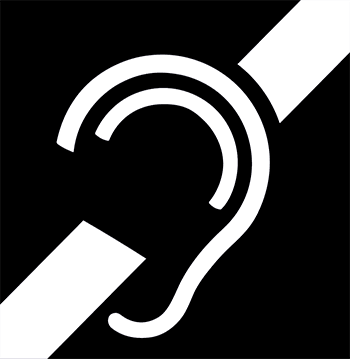Traveling With Hearing Aids: Tips and Tricks for a Seamless Journey
Traveling opens the door to new experiences, cultures, and memories. However, for those with hearing loss, the thought of navigating airports, hotels, and new cities with hearing aids can seem daunting. But don’t let that stop you! With the right preparation and knowledge, you can enjoy your travels to the fullest. This blog post provides essential tips and tricks for traveling with hearing aids, ensuring your journey is as smooth and enjoyable as the destination itself.
Care Wherever You Are with Beltone
As part of our Belcare Lifetime Care program, for as long as you own your Beltone hearing aids, you’re able to receive follow-up care at any of our 1,200 Beltone offices throughout North America. Plus, you can schedule a virtual appointment with your Beltone hearing care provider by simply using our Remote Care Live feature in the Beltone HearMax™ app from anywhere during your travels!
1. Pack a Hearing Aid Kit
Before you embark on your adventure, prepare a hearing aid kit that includes all essentials:
- Extra batteries or a charging station if your hearing aids are rechargeable.
- A dehumidifier or drying cup to protect your hearing aids from moisture, especially in humid destinations.
- Cleaning supplies to keep your hearing aids in top condition.
- A storage case for safekeeping when not in use.
Having these items on hand will help you manage most hearing aid needs on the go, ensuring they remain functional and reliable throughout your trip.
2. Plan for Airport Security
Navigating airport security with hearing aids can be stress-free. The Transportation Security Administration (TSA) does not require you to remove your hearing aids at security checkpoints. However, it’s a good idea to inform the security officer that you are wearing hearing aids to avoid any confusion during the screening process. Remember, metal detectors and body scanners are safe for hearing aids, so there’s no need to worry about damage.
3. Communicate Your Needs
Whether you’re boarding a plane, checking into a hotel, or taking a guided tour, don’t hesitate to inform service providers about your hearing loss. Many companies are equipped to accommodate guests with hearing impairments, offering services such as visual alerts for doors or alarms in hotel rooms, or written materials for audio tours. Communicating your needs can enhance your travel experience significantly.
4. Be Familiar With the Universal Signs and Symbols for Hearing Loss

The accessibility symbol for people with hearing loss typically includes an ear with a line through it, indicating that the location or service is accessible for those with hearing impairments. This symbol is often used to indicate the availability of assistive listening devices or other accommodations for individuals with hearing loss, including an induction loop system for those with telecoils in their hearing aids, to connect to at venues such as theaters and places of worship.
You can plan your travels accordingly by utilizing Loop America’s Loop Locator to find venues throughout the U.S. with loop systems.
5. Use Technology to Your Advantage
Leverage technology to make your travels easier. Many hearing aids now come with Bluetooth connectivity, allowing you to directly stream audio from your smartphone or other devices. This can be particularly useful for listening to flight announcements, GPS directions, or audio guides—especially as Auracast™ broadcast audio becomes more widely available. Additionally, smartphone apps can provide visual or vibrating alerts, text-based communication options, and even language translation services to assist you in unfamiliar environments.
6. Protect Your Hearing Aids from the Elements
Travel often involves exposure to various environments that could harm your hearing aids. Keep them dry and free from dust or sand. If you plan to be in a wet or very humid location, consider using a waterproof hearing aid cover or storing them in a waterproof case when not in use. Similarly, in very hot or sunny locations, avoid leaving your hearing aids in direct sunlight for extended periods to prevent damage.
7. Stay Mindful of Time Zones and Battery Life
If you’re traveling across time zones, be mindful of the effect on your hearing aid batteries. Change your batteries if necessary before you depart to ensure they don’t run out at an inconvenient time. For rechargeable hearing aids, remember to adjust your charging schedule to match the local time zone.
8. Schedule a Pre-Trip Hearing Aid Checkup
Finally, consider visiting your hearing care professional for a checkup before you leave. They can ensure your hearing aids are functioning optimally and provide any last-minute maintenance or adjustments needed for your trip.
Taking the First Step With Beltone
Traveling with hearing aids doesn’t have to be a challenge. With the right preparation and mindset, you can fully enjoy every aspect of your journey. If you or a loved one is considering hearing aids or needs a pre-trip checkup, Beltone is here to help. Schedule a follow-up appointment or a free hearing screening* at your local Beltone today and take the first step toward a world of clearer hearing—both at home and on your travels.
Our team at Beltone understands the importance of hearing health in maintaining an active, enjoyable lifestyle. Let us support you in your journey to better hearing and better traveling, ensuring you don’t miss a single moment of your adventures.

Online Hearing Test


